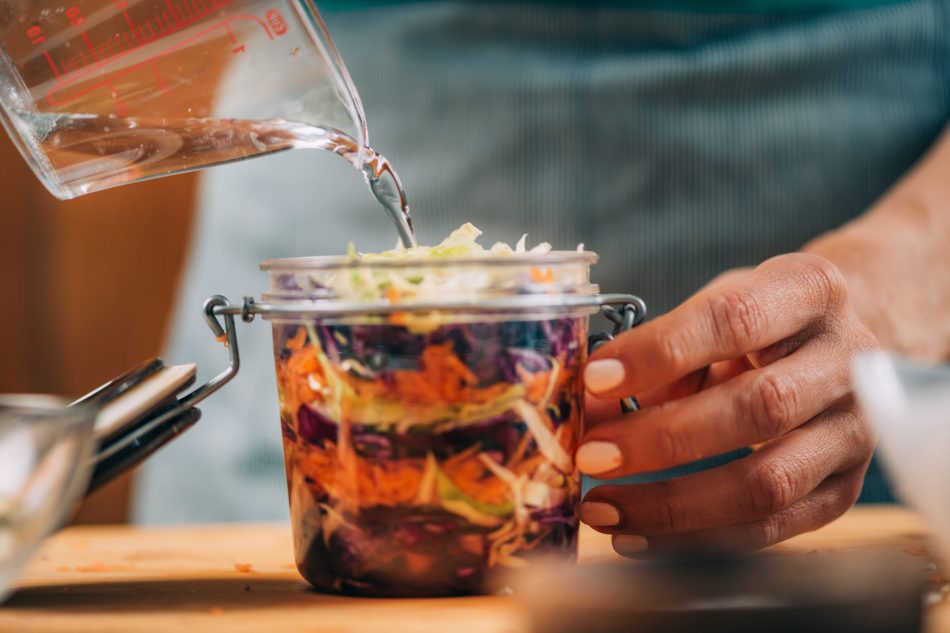Here at The Optimist Daily, we love sharing practical ways people can help combat climate change right at home. While the climate crisis may leave us feeling helpless and overwhelmed, there are small actions that we can take that will propel us in the right direction and empower us.
Food waste is a largely overlooked contributor to climate change, as uneaten food that ends up in landfills rots and produces methane, a greenhouse gas that is even more potent than carbon dioxide, and it’s an issue that we can do something about with just a bit more planning in the kitchen. Food preservation is one of the ways we can reduce food waste and make a big impact on the planet. Here are five food preservation methods to try at home.
Freezing
If you have room in your freezer, freezing is a great way to keep food items like soup, stock-starters, and sweet treats. It’s also one of the simplest methods to preserve food, however getting the knack for it still takes some practice. Just be sure to keep an eye out for freezer burn and be mindful about how you package and store frozen food.
How long it keeps
Frozen food will be fine for up to three months without sacrificing much flavor or texture (generally). That said, if food gets freezer burned, it won’t be very tasty. Manage your frozen foods by sticking to the first-in, first-out rule, and date your items to help you keep track.
Dehydrating
People have a long history of using dehydration to preserve food because it doesn’t require many tools as long as you have warmth and sunshine. Another advantage to dehydration is that it makes food compact so you can store it in bulk. Almost anything can be dehydrated, from fruits to fish, making it optimal for buying seasonal produce to use throughout the year. It is a more intermediate method so take a look at this how-to guide for some tips, tricks, and strategies.
How long it keeps
Dehydrated food can last for years if done right.
Pickling
Picking comes in many forms (think quick pickling, canned vinegar pickles, fermenting, etc.) and is probably the most common method of food preservation out there. If you’re a beginner, maybe start with quick pickling before trying more advanced methods such as fermenting. All you need to do is add fresh vegetables into an acidic solution like vinegar. This allows you to preserve the veggies for a few weeks longer while infusing them with a tangy and sour flavor.
How long it keeps
Quick pickling will keep your food for up to four more weeks and must be stored in the fridge. Canned vinegar and fermented vegetables can last for months if they remain in the cupboard unopened.
Fermenting
If you’re an experienced food preserver, then you might be ready for the advanced method of fermentation. Humans have a rich history of fermenting foods to make them last longer and to benefit from more vitamins and minerals. Lacto-fermentation allows good bacteria to grow which is great for your gut, but it’s important to be careful when doing this as the body can be very sensitive to the microbes you create through this preservation method. Check out this guide to ensure you are fermenting safely.
How long it keeps
Fermented food can last from months to years depending on storage method and whether it remains unopened.
Canning
Canning can be done in two ways (water bath canning is best for high-acid foods like fruits, and pressure canning, which is the most suitable for meats, seafood, and veggies). It requires you to heat whatever food you have inside your jar or can at a high enough temperature to inactivate the enzymes that make food spoil. When the container cools down, the food expands and pushes air out of the jar. This method is also for the more advanced chef, so if you’re new to canning, consider using a guide to ensure that you’re taking the right steps.
How long it keeps
Canned food can be shelf-stable for up to a year.










